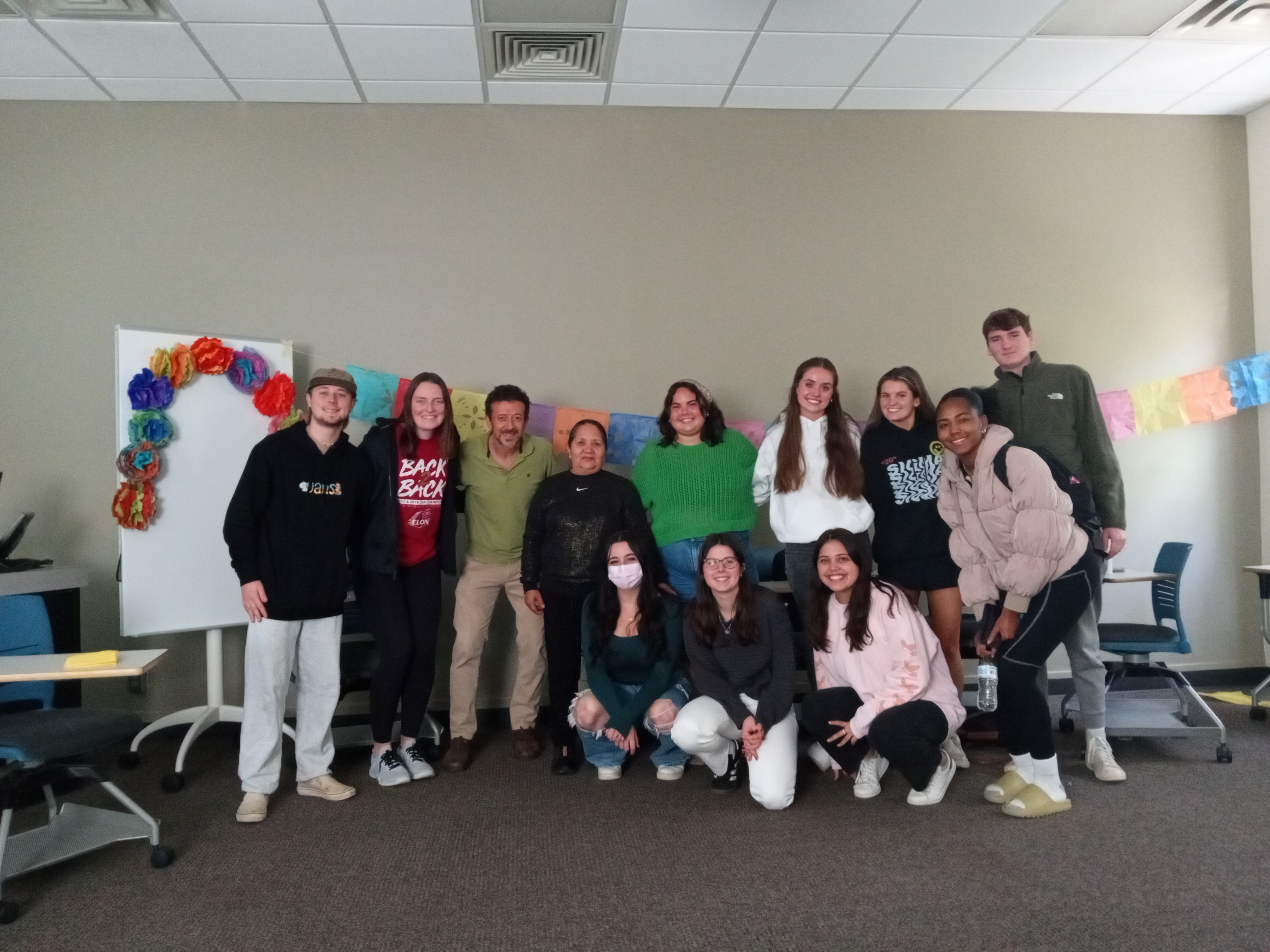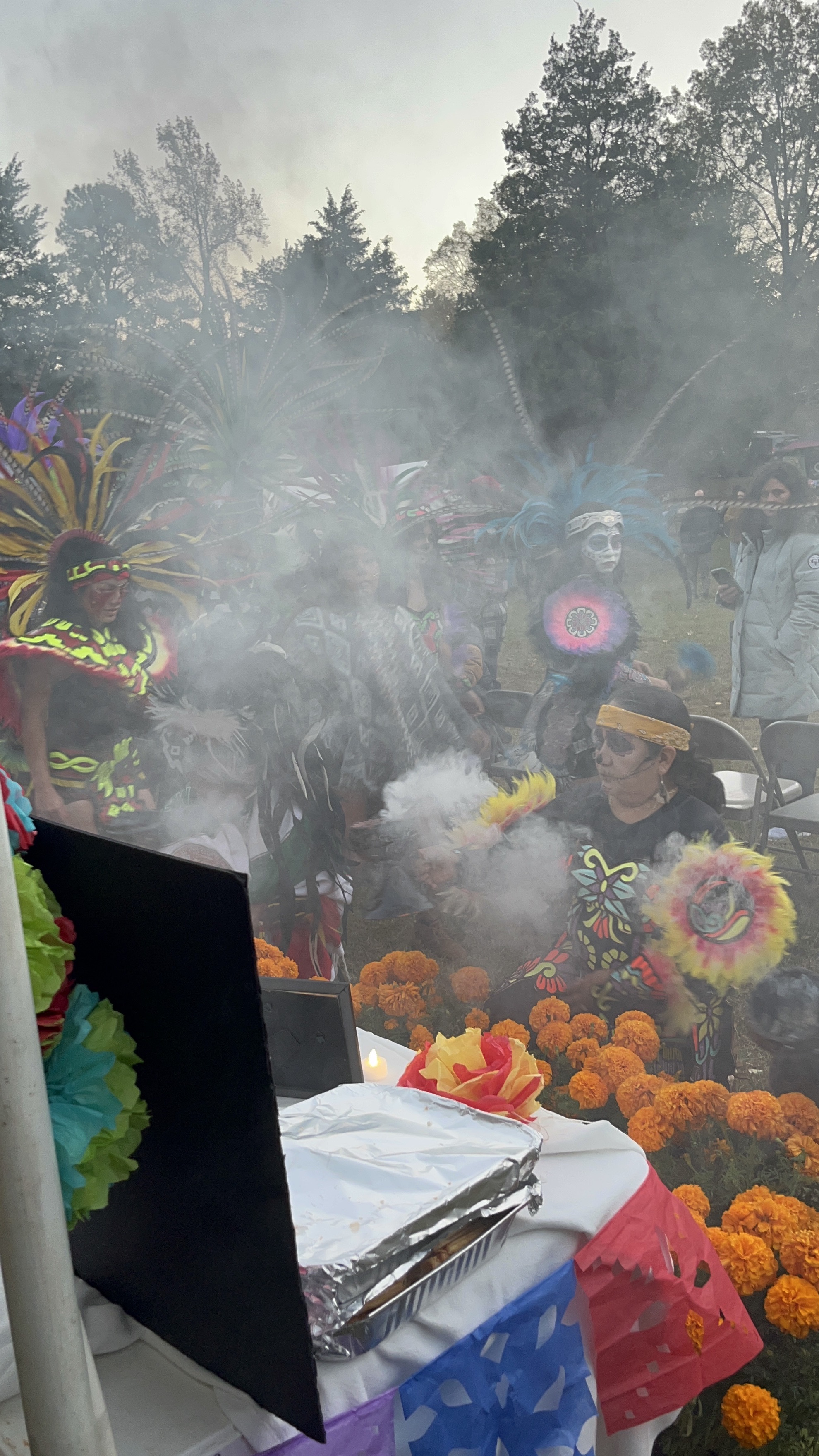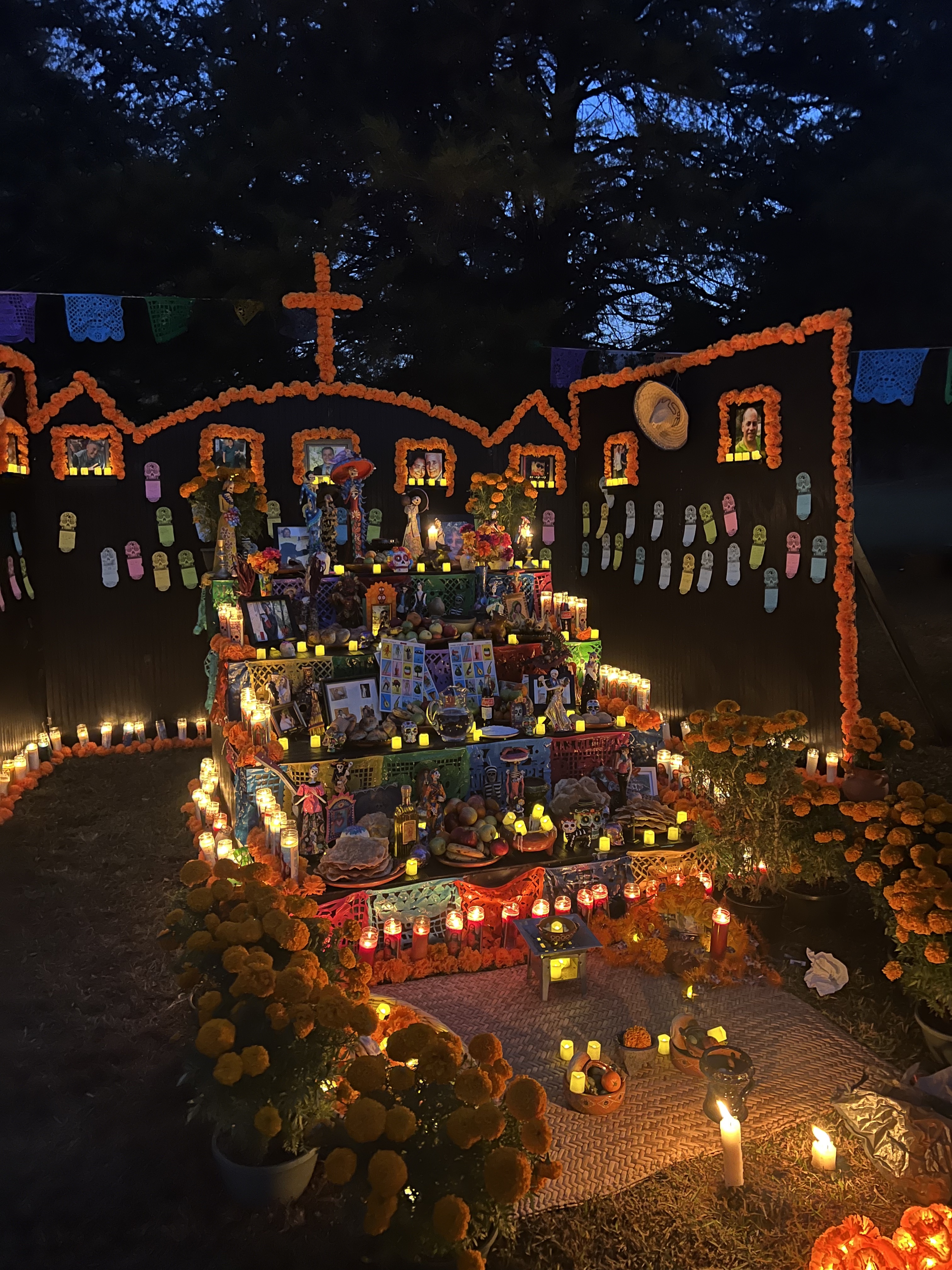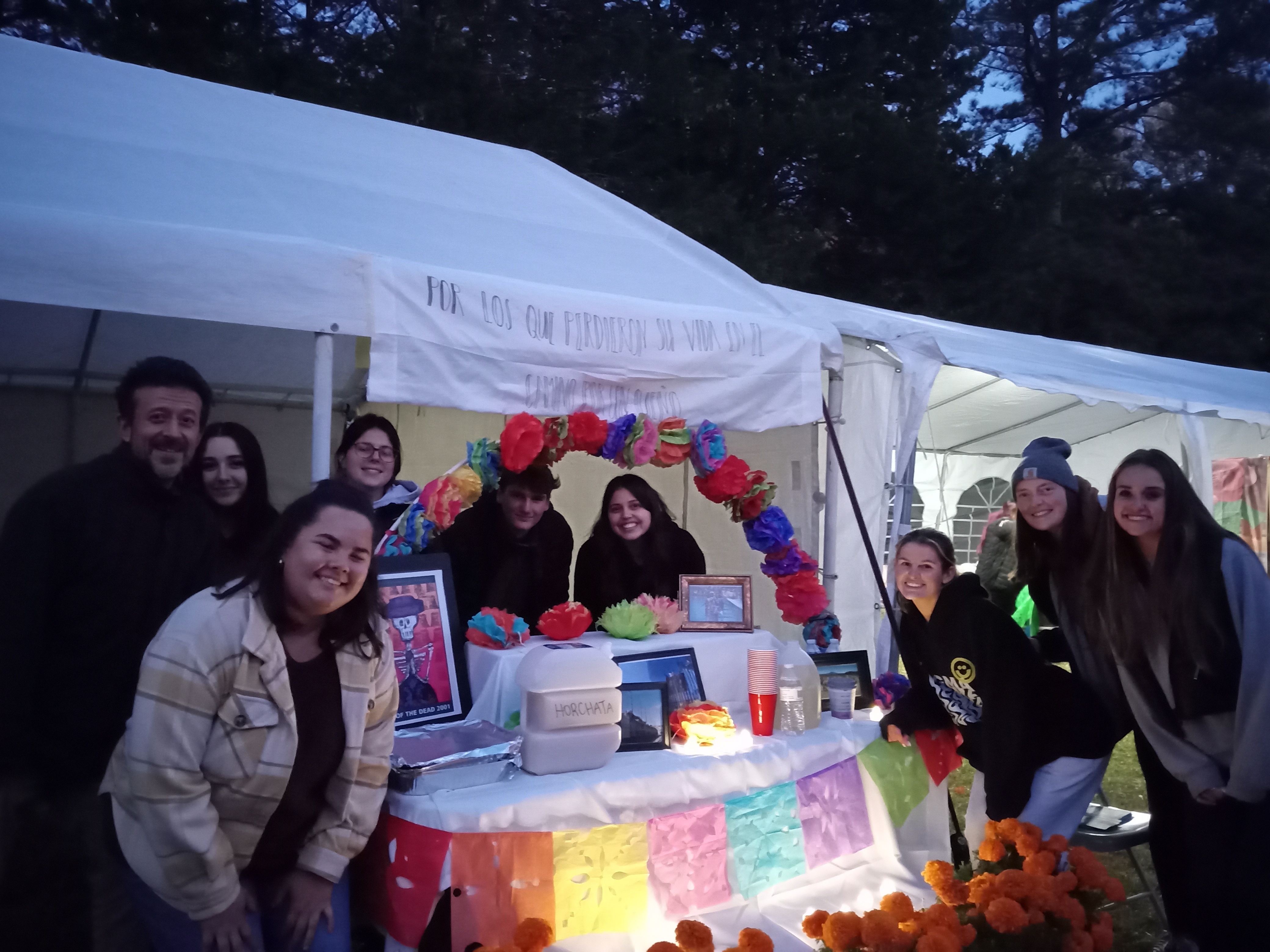On Nov. 1, Professor Pous’ SPN3570 Representations of Socio-Political Conflicts class participated in the Día de los muertos festival in Durham, NC. The 10 students, with the help of the professor, constructed a traditional altar in memory of the people who lost their lives on their voyage to the US from Latin American countries.
 A week before the festival, activist Yolanda Zabala visited the class to talk about the tradition of Día de los muertos, and to teach how to make typical elements of an altar, like papel picado. Zabala has been the organizer of the festival for the past four years. This was the second time that Professor Pous brought one of his classes to it.
A week before the festival, activist Yolanda Zabala visited the class to talk about the tradition of Día de los muertos, and to teach how to make typical elements of an altar, like papel picado. Zabala has been the organizer of the festival for the past four years. This was the second time that Professor Pous brought one of his classes to it.
Día de los muertos, also known as the Day of the Dead, is a Mexican holiday where families welcome back the souls of their deceased relatives for a brief reunion that includes food, drink, and celebration. It is celebrated each year from Oct. 31 to Nov. 2.
 On the Day of the Dead, it’s believed that the border between the spirit world and the real world dissolves. During this brief period, the souls of the dead awaken and return to the living world to feast, drink, dance, and play music with their loved ones. In turn, the living family members treat the deceased as honored guests in their celebrations and leave the deceased’s favorite foods and other offerings at gravesites or on the ofrendas built in their homes.
On the Day of the Dead, it’s believed that the border between the spirit world and the real world dissolves. During this brief period, the souls of the dead awaken and return to the living world to feast, drink, dance, and play music with their loved ones. In turn, the living family members treat the deceased as honored guests in their celebrations and leave the deceased’s favorite foods and other offerings at gravesites or on the ofrendas built in their homes.
The class has been reading the novel by Marie-Célie Agnant, “El libro de Emma.” The book is centered around the themes of immigration, racism, and sexism, with the protagonist being a woman from Haiti. For this reason, the ofrenda created by the students was dedicated to all of those who perished on the route from their native country to the US. The altar was adorned with elements that migrants might travel with: water bottles, horchata, lemonade, homemade pastries, and pictures. And it was decorated with traditional elements such as the papel picado, real and paper marigold flowers, and candles. Additionally, the students created pamphlets with statistics about immigration from Central America to give to those who passed by. The central quote of the altar was the following: “Este lugar sagrado está dedicado a los que perdieron su vida en el camino por el sueño de una vida mejor,” which translated means: “This sacred place is dedicated to all who lost their lives in the journey for the dream of a better life.”
 The festival in Durham is a two-day event that takes place in the evenings of Nov. 1 and 2. Because of the limited space, the festival isn’t publicized and is on an invite-only basis. Professor Pous’ class participated the first night, and most of the students told me they had a blast and learned so much about this particular Mexican tradition. Once at the festival, the students parked in a nearby field and walked through an impressive gateway, symbolizing their entrance into a sacred space. After setting up the altar, a dancing procession of men and women wearing traditional clothing and skeleton face paint started blessing each ofrenda, and the festival began. Almost every altar had food for everybody, so the students got to enjoy some Mexican delicacies like tamales and also sip on some hot beverages to keep warm. While people went from ofrenda to ofrenda, dance groups from Georgia, South Carolina, and North Carolina performed traditional dances.
The festival in Durham is a two-day event that takes place in the evenings of Nov. 1 and 2. Because of the limited space, the festival isn’t publicized and is on an invite-only basis. Professor Pous’ class participated the first night, and most of the students told me they had a blast and learned so much about this particular Mexican tradition. Once at the festival, the students parked in a nearby field and walked through an impressive gateway, symbolizing their entrance into a sacred space. After setting up the altar, a dancing procession of men and women wearing traditional clothing and skeleton face paint started blessing each ofrenda, and the festival began. Almost every altar had food for everybody, so the students got to enjoy some Mexican delicacies like tamales and also sip on some hot beverages to keep warm. While people went from ofrenda to ofrenda, dance groups from Georgia, South Carolina, and North Carolina performed traditional dances.
All in all, it was a great experience for all the attendees; spirits were high, and the immersion into a different culture really marked the students. This could not have been possible without the leadership of Dr. Pous and the help of the Center for the Advancement of Teaching and Learning.



